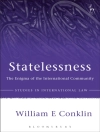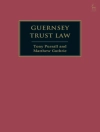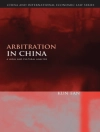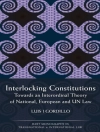Fifty years after the adoption of the Declaration on Permanent Sovereignty over Natural Resources by the General Assembly of the United Nations in December 1962, this volume assesses the evolution of the principle of permanent sovereignty over natural resources into a principle of customary international law as well as related developments. International environmental and human rights law leave unresolved questions regarding the limitations of this principle, e.g. extraterritorial and international influences such as the applicable criminal and tort law, as well as the extraterritorial and international promotion of good governance, including transparency obligations.
Innehållsförteckning
Stephan Hobe, Evolution of the Principle on Permanent Sovereignty over Natural Resources – From Soft Law to a Customary Law Principle?.-
Nico Schrijver, Fifty Years Permanent Sovereignty over Natural Resources – The 1962 UN Declaration as the opinio iuris communis.-
Friedl Weiss and Bernhard Scherzer, (Existence of) Common or Universal Principles for Resource Management (?).-
Fernando Loureiro Bastos, A Southern African Approach to the Permanent Sovereignty over Natural Resources and Common Resource Management Systems.-
Richard W. Roeder, Australia’s Resource Management System in the Light of UNGA Resolution 1803.-
Manjiao Chi, From Ownership-orientation to Governance-orientation – An International Economic Law Perspective of China’s Shifting Attitudes Towards Resource Sovereignty.-
Marc Bungenberg, Evolution of Investment Law Protection as Part of a General System of National Resources Sovereignty (and Management)?.-
Shotaro Hamamoto, Compensation Standards and Permanent Sovereignty over Natural Resources.-
André Thomashausen, (Foreign) Investment Strategies in Africa.-
Karl M. Meessen, Kimberley as a Means of Promoting Good Governance – The Role of Business.-
Hans-Georg Dederer, Extraterritorial Possibilities of Enforcement in Cases of Human Rights Violations.












